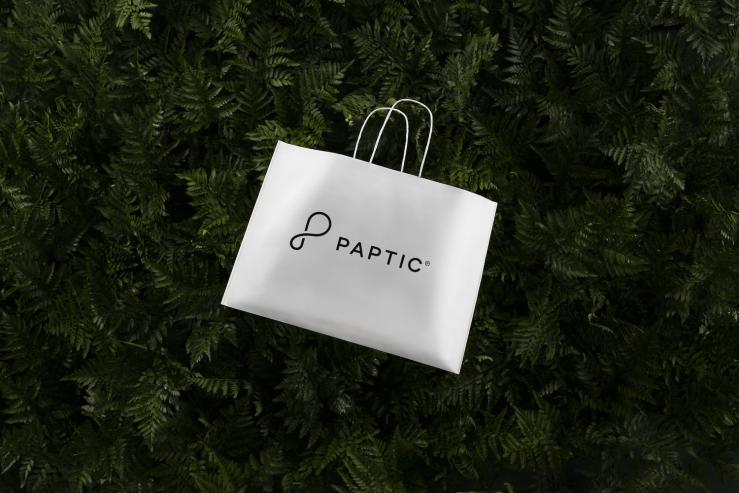Every year millions of tons of plastic waste end up on our streets, in our rivers and covering our forests. A large part of this waste comes from packaging. The plastic bags we use, for only a few minutes, can last as long as 15 to 1,000 years in the environment and, according to a recent study, people could be ingesting or inhaling approximately 5 grams of plastic every week. The Finnish start-up Paptic Ltd, founded in 2015, addresses this environmental challenge with a sustainable alternative to plastic films. Paptic material has all the advantages of plastic - it's versatile, reusable, light-weight, soft, but it's made of renewable raw materials and it’s recyclable.
As its name suggests, PAPTIC® offers an unseen combination of paper and plastics’ qualities. The material is made of sustainable wood fibre, suitable for uses where plastic films have previously been the only alternative. The versatility, along with its exceptionally pleasing haptic properties, makes this solution a powerful tool for environmentally conscious brands.
“It is the first fully biodegradable and recyclable environmental alternative to plastic to be proposed and its uptake is expected to be exponential,” said Tuomas Mustonen, project coordinator and CEO of PAPTIC Ltd. “Most bioplastics are either biodegradable or recyclable – our product is both”.
Single use products have a large possibility of ending up in nature and eventually into oceans. Multi use products are made of renewable materials, recyclable and reused for years, but this not the case with most reusable bags. Products made of Paptic® can and should be used more than once, even more than 10 times, as they are strong and don’t rip easily. The reusability combined with recyclability makes Paptic® - materials the most sustainable alternative for plastics in packaging.
“Furthermore, most bioplastics do not degrade well in the marine environment. PAPTIC will help the EU reach the ambitious environmental and plastic reduction targets set out in its own directives and in the Paris Agreement”, added Mustonen.
The platform is based on a 7-year and €10m research portfolio, spin-off from VTT Technical Research Centre of Finland. The company received funding from the EIC in 2016 to scale-up their production and the technology is protected by several patent applications. “The EU has supported PAPTIC in the process of scaling up production to an industrial level capable of achieving the cost efficiency needed for PAPTIC to become an economically viable and acceptable alternative and to be taken up on as wide a scale as possible,” concluded the CEO.
In April, the company started a crowd-funding round for sustainable materials intended for Finnish investors. The round was closed successfully in June with €4.3 million. Paptic will use this financing round for the next stage of growth and will remain open for additional investments from strategic partners later this year.

DISCLAIMER: This information is provided in the interest of knowledge sharing and should not be interpreted as the official view of the European Commission, or any other organisation.

